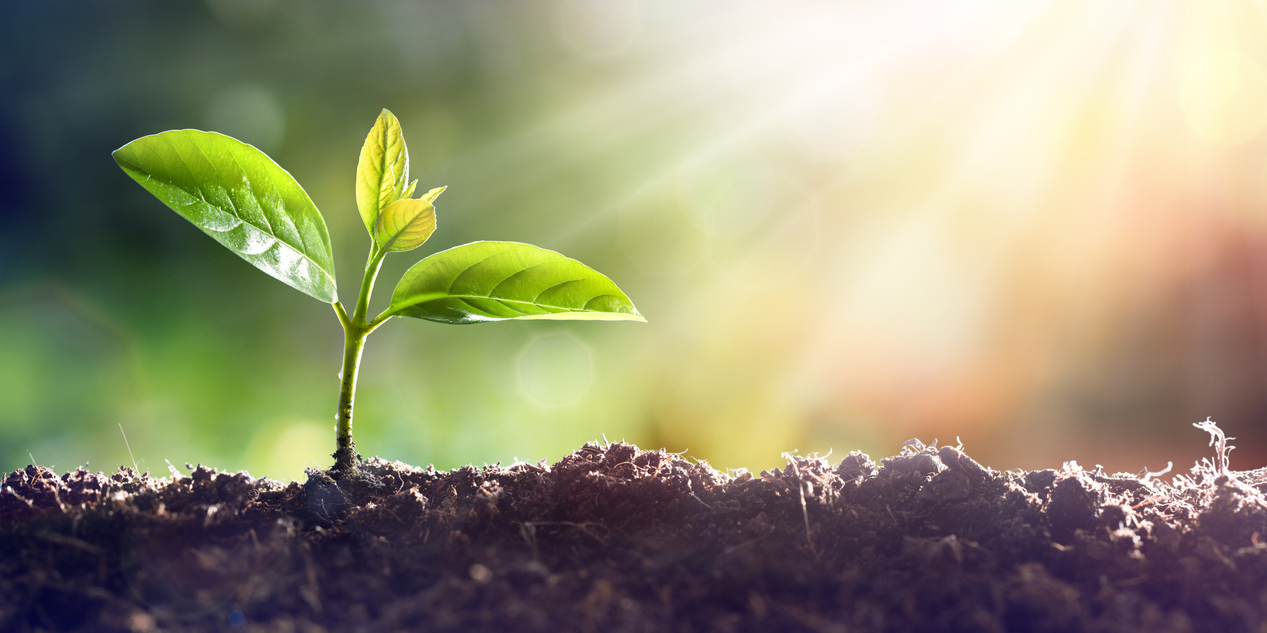Go Green … No, Really, We Mean It

Spring has sprung and you know what that means … it’s time to talk about green funerals, of course! Okay, well maybe you are a little more focused on reviving your garden and basking in some long overdue sunshine. At People’s Memorial Association (PMA), though, we dedicate an entire week to talking about the ways our bodies impact our planet at the end of life.
One of the most common questions we hear at PMA from people researching their options is, “What can I do to minimize the environmental impact of my funeral?” In a region so passionate about the majesty of the outdoors, this is no surprise. We know that it takes a lot of materials to build a casket, a lot of chemicals to embalm a person, and a lot of industrial tools to maintain a perfectly manicured, sprawling cemetery lawn. It leads a lot of folks to choose cremation instead.
For generations, cremation was the most ecologically friendly deathcare option around, but things have changed. For one thing, we know now that this energy-intensive process releases 219 known emissions, including carbon dioxide, greenhouse gases, and carcinogenic toxins.
Here in Washington, our affinity for cremation has led to 1,400 pounds of mercury vaporized in the last five years alone, to say nothing of the natural gas we’ve gobbled up! We lead the nation in cremation, with nearly 80 percent of Washingtonians choosing this option for their final disposition. (The national average hovers at only about 52 percent!)
With the passage of SB5001 just a few years back, Washingtonians have two more options for caring for their bodies and both have a reduced impact on the environment. Alkaline hydrolysis (aka aquamation) and natural organic reduction (aka human composting) became legal in 2020 and have since allowed many families the chance to choose the care that aligns with their values.
During our fourth annual Green Funerals Week, we’ll investigate the environmental impact of conventional burial, learn about creating meaningful ritual in unconventional funerals, find out about soil futures, and hear the story of the first aquamation to take place in Washington. As part of this series, PMA is excited to close out the week with a unique opportunity for connection and community: a guided tour of Return Home’s natural organic reduction facility followed by refreshments and a special crafting workshop facilitated by The Grateful Death.
As Washington’s oldest funeral education and consumer advocacy nonprofit, PMA knows our community has come to expect high-quality, fascinating educational content from us. We can’t wait for you to join us at Green Funerals Week to see us in action and get your questions answered by the experts:
- 5/30: Aquamation & Evelyn, with former Funeral Director Intern Rachel LeBlanc (Zoom)
- 5/31: Soil Futures, with Recompose Communications Manager Laura Cassidy (Zoom)
- 6/1: The Environmental Impact of Conventional Burial, with People’s Memorial Association Communications Manager Beverly Tryk (Zoom)
- 6/2: Making Meaning with Green Funerals, with Wildflower Funeral Concepts Co-owner & COO Brian Flowers (Zoom)
- 6/3: Return Home tour & Soul Collage workshop, with Crystal Flores from The Grateful Death (in-person)
Register and save your seat by visiting our website. PMA members can join the webinar sessions for $5 each and nonmembers can join for $10. The in-person session at Return Home’s facility is $20 per person for members and $30 for nonmembers … and registration is limited, so grab your ticket soon!
Can’t make a webinar session? Register anyway and receive a link to the recording of the session via e-mail, along with the presenter’s materials. We also invite you to check out our webinar library for a peek back at previous sessions.
Got questions? Leave a message at 206-325-0489 or e-mail info@peoplesmemorial.org.
We’ll see you on the green side!
 Contributor Beverly Tryk manages communications for People’s Memorial Association.
Contributor Beverly Tryk manages communications for People’s Memorial Association.
This article originally appeared in the May 2023 issue of AgeWise King County.
![Aging & Disability Services for Seattle & King County [logo]](https://www.agingkingcounty.org/wp-content/themes/sads/images/seattle-ads-logo.png)